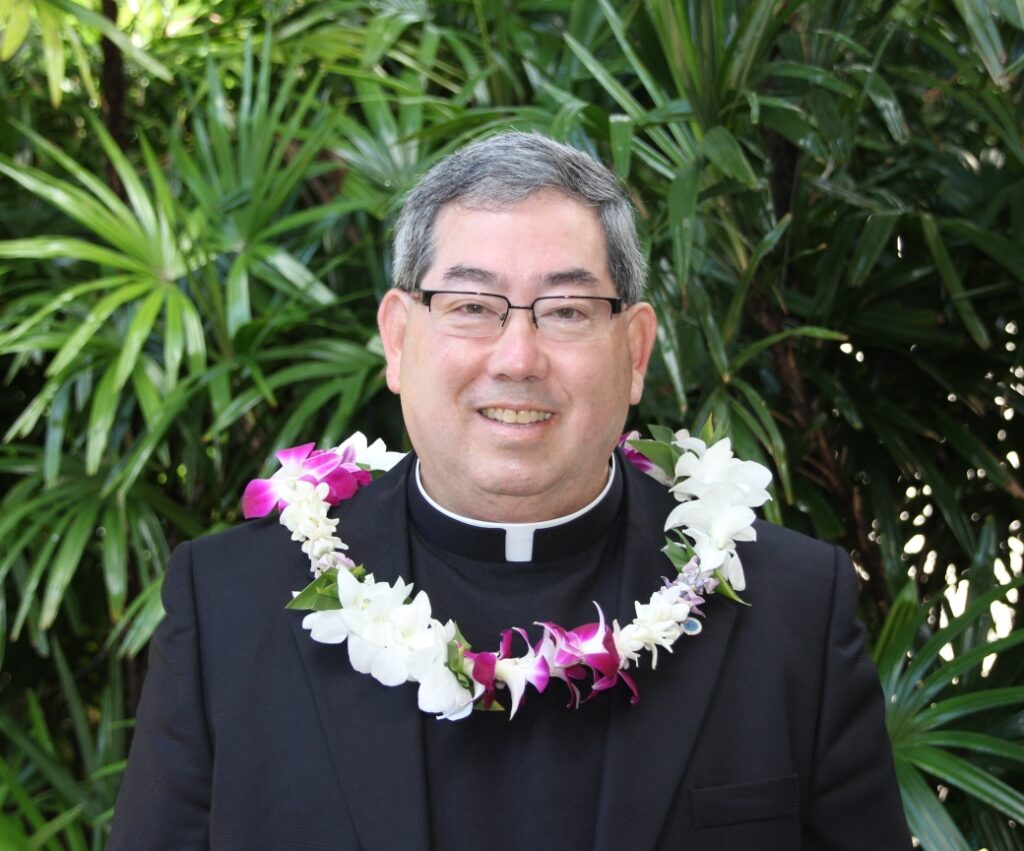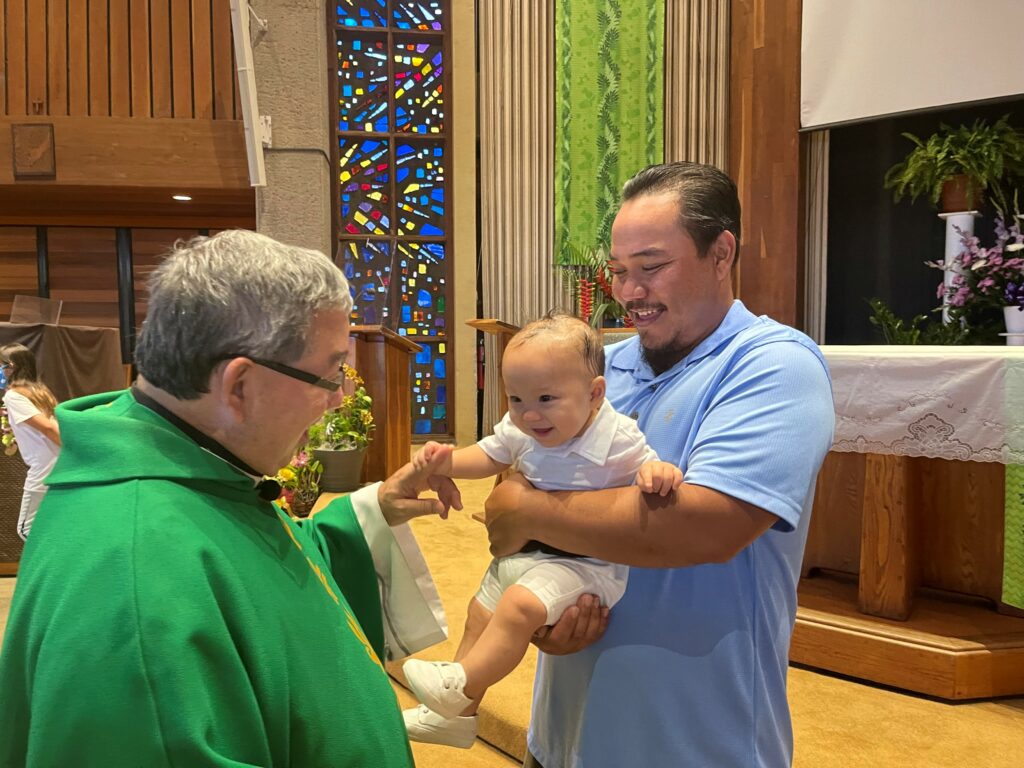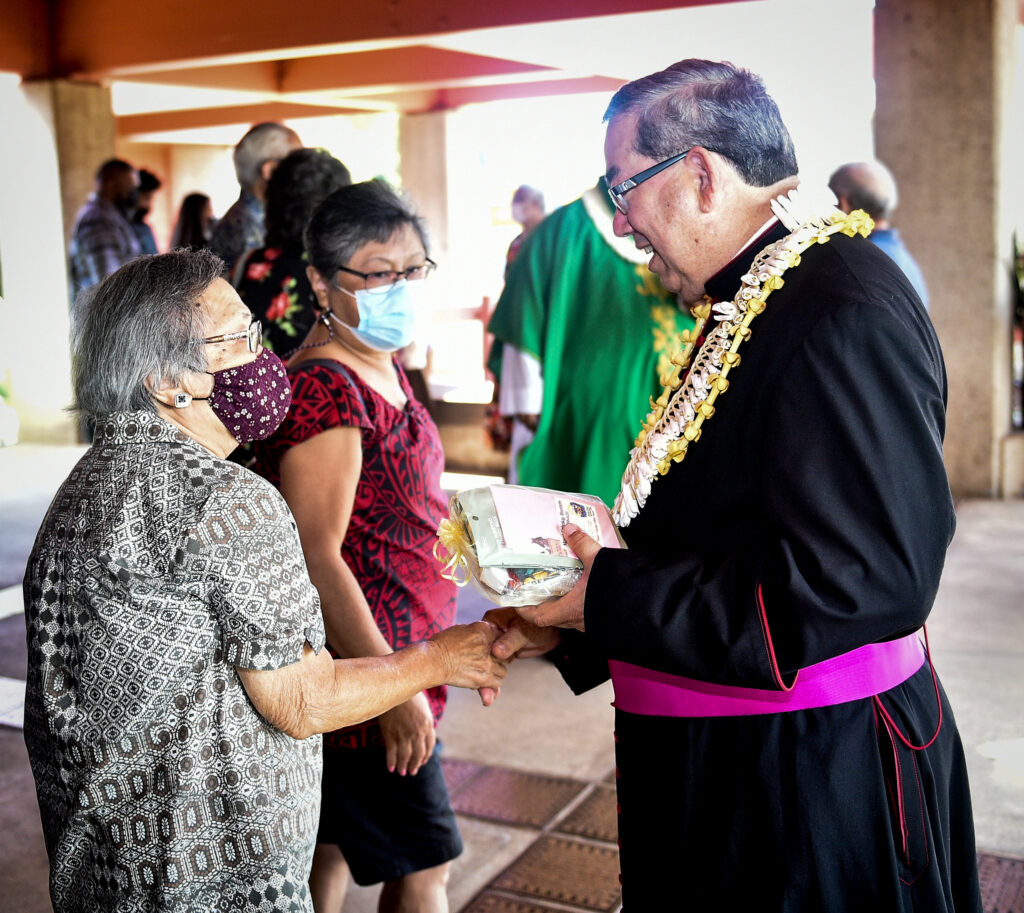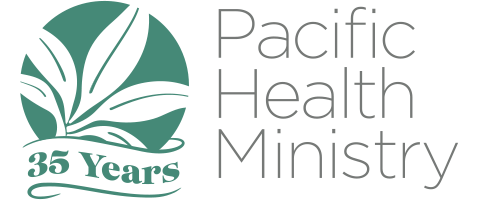“The actual experience was even better than what I had anticipated. If you’ve been doing it awhile, as I had been, you think “Why do I need to go? What am I going to learn?” The experience was far better.”
– Rev. Msgr. Terry Watanabe
Why did you decide to enroll in CPE? When I returned to Maui in 2008, I was tasked with opening an office for affordable housing for the diocese. While it was important work, I found myself with the time to take part in the program, so I thought it was a good idea to do a semester of CPE.
When I returned to Maui in 2008, I was tasked with opening an office for affordable housing for the diocese. While it was important work, I found myself with the time to take part in the program, so I thought it was a good idea to do a semester of CPE.
How did you initially hear about the CPE program?
I became a priest in 1977, so I had heard about CPE because I knew some of the people who were involved. While I was in the seminary, I didn’t have the opportunity to attend but when I returned home, I found myself with that opportunity.
When and in what specific program did you participate in CPE?
I was enrolled in sessions at the Queen’s Medical Center, a major trauma hospital, while I was involved in CPE. It was a great experience and helped me to sharpen my thoughts and skills in dealing with patients and staff in different situations. I also found that I was comfortable in that setting, as it was the first time that I was able to focus solely on ministry.
Did you have any preconceived ideas or notions about CPE?
The actual experience was even better than what I had anticipated. When you’ve been doing it awhile, as I had been, you think, “Why do I need to go? What am I going to learn?” The experience was far better.
It made me consider whether I wanted to do hospital chaplaincy full-time. It’s a unique opportunity that allows you to spend more time with people. Everyone in the hospital gets to know you, so from the patients to the staff, it’s a community and you get to be a part of an ‘ohana.
Can you describe what the CPE program was like?
Each day at the hospital, we would wait for a listing of patients who had asked for a chaplain to visit them. Sometimes we would have sessions at the PHM office or meetings with Chaplain Al Miles. Sometimes, we would sleep there overnight and get called to the ER or other floors and speak with a patient. Whatever the need was, we responded.
While I worked with patients of all backgrounds, since I was already a priest, PHM allowed me to assist when specific requests were made for a Catholic priest, as I carried the sacred oils from the church for anointing.
I’ll never forget one evening when the coast guard was involved in a helicopter crash. The staff was overwhelmed receiving men who had already died, men whom they were trying to resuscitate, as well as their families. All of the men involved that day passed away.
The hospital staff felt so moved by this tragedy that they wanted to do something special for the families who had lost their loved ones. We held a prayer service, listened, and remained available for anyone who wanted to talk.
Chaplaincy is so important because when the medical professionals can no longer do anything, that’s when spiritual care becomes most vital. It’s not just about the physical healing, but the spiritual healing as well.
 What is your current job and how has CPE impacted your career?
What is your current job and how has CPE impacted your career?
I currently serve as pastor of St. Anthony Church and School in Wailuku, Maui which is a parish of about 700 families and a school with nearly 300 students from pre-k to grade 12.
CPE has made me very “people-oriented.” My experience in CPE has helped me to become a better listener and become more in touch with people’s emotions and feelings as opposed to only seeing a specific event happening at that time.
What impact has CPE had on you personally?
Being a part of CPE has increased my prayer life and has given me a greater appreciation for how good we have it.
Now that we’ve been through COVID, I have an even more tremendous appreciation of those in healthcare and all the people who are willing to go beyond themselves to help people recover, get better or deal with whatever situation they may have so that they might have a better quality of life. Doctors get called in at 2 a.m. or 3 a.m. in order to save people’s lives — it’s not what you see on tv or what gets reported on but it’s going on every day in our hospitals and clinics.
Chaplaincy is important because you want to treat the whole person. The physical part of them is not the only thing they’re dealing with. Their physical issues cause them to reflect on other aspects of their lives, like their relationships with loved ones – is it good, broken, does it need mending/healing. When you’re confronted with death and you haven’t dealt with it to that point, you’re naturally going to have fears and anxiety about it. The only way to deal with it, oftentimes, is to speak with someone.
A chaplain’s job is to listen, to provide guidance as people try to resolve some of their personal feelings and issues as they deal with illness, injury and even death.
It’s important for us to educate the whole person. Everyone has a spiritual side to them. Spirituality is not a religion but instead the spirit of a person. It’s what they believe in, things that they live by, and the values they have. We’re not human beings without spirituality.
We shouldn’t forget one aspect of who we are. It’s like a chair – if it only has 3 legs, it could fall over. We’re physical, social, spiritual – we have all these aspects of our lives and we have to ensure we’re keeping them all going forward.
Life during COVID
For me, it was the lack of interaction and building relationships with people was tough. To be in a church that holds 550 people to all of asudden no one sitting there was heartbreaking. It was important for us to do our best. At St. Theresa, everyone divvied up contact info and reached out to the parish.
With the school, there were some challenges but we remained open and put protocols in place to keep our students safe and in the classroom. The kids were really good about social distancing and wearing their masks, as well as sanitizing tables, desks, and chairs.
I hope that we’ve all come to a greater appreciation of the blessings we have now, which we did not have throughout the pandemic. Here in Hawaii especially, being together with family and friends and hugging and greeting people, and doing things for people, is so ingrained in the culture.
